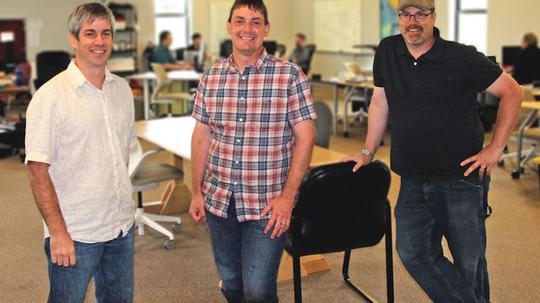
Justin Grammens believe the concept of the "Internet of Things" may go away. Because soon, he believes, "everything is going to be connected and it’s going to be on the internet."
Now he hopes Lab 651, his new IoT-focused venture, will be the firm that helps companies get their products and services on board with this ultra-connected future.
Lab 651, which launched in 2016 but officially announced its offerings this week, is a full stack development firm for IoT-related projects and products. The firm has three teams with different, complementary expertise--mobile app development and data science, embedded electrical systems, and mechanical and industrial design--under one roof. Its suite of tools includes 3D printers, the ability to print circuit boards, a variety of mobile phones for testing, and access to cloud infrastructure, among other resources.
"Everything is going to be connected and it’s going to be on the internet."
The idea is that clients can use Lab 651's services a la carte, or go to Lab 651 with an idea and the firm has the tools to see it all the way through to production.
"Instead of sending [projects] to someone across the city, across the United States, or even across the world in some cases...we have it all here for you," Grammens noted.
Grammens, who previously founded a development firm and connected tech organization IoT Fuse, cofounded Lab 651 with Rodney Landers, a patent-holding electrical engineer and serial startup founder, and Troy Pongratz, a mechanical engineer who previously ran his own engineering firm. Lab 651 currently has 15 employees and is currently hiring for additional roles.
Since launching in May 2016, they've worked on a number of projects, ranging from apps for Best Buy and Buzzfeed, to working on sensors and data collection with local smart water meter startup Fluid, to building a system of connected trays, embedded circuit boards, and a mobile app for teachers monitoring students' work for an MIT Media Lab pilot project at Minneapolis-based Wildflower Schools.

Lab 651 is also looking into manufacturing some of their own products based off the connected device demand. After repeatedly fielding requests for technology that could monitor industrial equipment, they teamed up with Keystone Automation to create Praeco, an industrial signaling device. Grammens said while this device meets basic monitoring needs, it also can be customized for individual clients through Lab 651's additional expertise.
Ultimately, Grammens believes that this development will soon be necessary to every product company.
"I’ve gone through these waves of tech advancement," he said. "You need the waves to throw stuff at the wall and try things and be experimental. Right now, we’re allowing a place for people to be experimental and try [it] out. What happens if you do connect your product to the internet?"
Image credit: Lab 651








